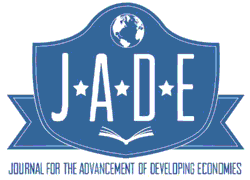Institute for the Advancement of Developing Economies

Journal for the Advancement of Developing Economies
Date of this Version
2018
Document Type
Article
Citation
Journal for the Advancement of Developing Economies 2018 Volume 7 Issue 1, pp 18-40.
doi 10.32873/unl.dc.jade7.1.3
Abstract
The private transfers sent by immigrant workers back to their home countries, or remittances, can improve the development of recipient countries through poverty reduction, higher education, and new business formation. However, the effect of remittances on income inequality is still debatable. While some studies suggest that these transfers are sent to the poor, other investigations find that remittances are directed toward higher-income cohorts, widening the gap between rich and poor. This study provides new evidence about potential income inequality reduction driven by remittances and quality of institutions. For instance, weak institutions discourage the usage of remittances toward productive ventures, more so among poor families. Middle- and high-income groups tend to be better prepared to reduce their exposure to the damages of weak institutions. We constructed instrumental variables and completed two-stage least square (2SLS) analysis to address possible causality bias, a problem so pervasive in this type of empirical studies. Using a set of 25 institutional indicators, we find that remittance recipient countries with better institutions have more meaningful reduction in income inequality. This effect is stronger among heavy remittance-recipient countries.
Included in
Econometrics Commons, Growth and Development Commons, International Economics Commons, Political Economy Commons, Public Economics Commons, Regional Economics Commons


Comments
Copyright © 2018 JADE